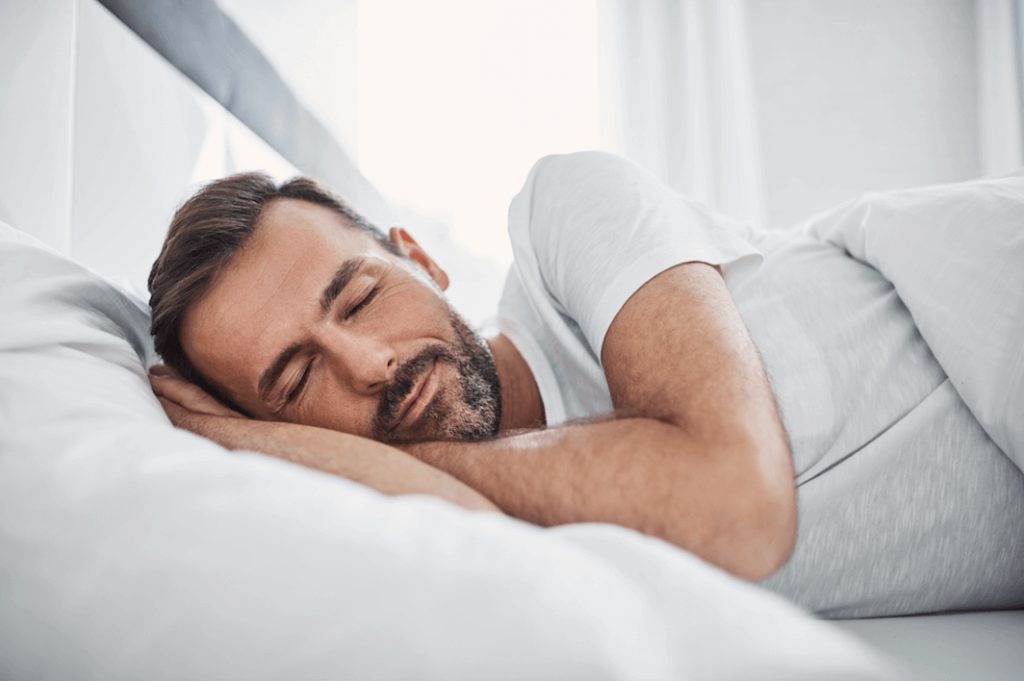Around 25 million adults in the U.S. have obstructive sleep apnea (OSA), a condition that causes pauses in breathing hundreds of times a night. Sleep apnea happens when muscles relax during sleep, which makes soft tissues collapse and block the airway. When this occurs, breathing stops, leading to brief awakenings that disrupt sleep. Common signs of OSA include gasping, snoring, or choking during sleep.
At Integrated Dental in Sarasota, FL, Dr. Melvin Benson helps patients with sleep apnea and Upper Airway Resistance Syndrome (UARS). He provides many restorative treatments tailored to your needs.

What is Obstructive Sleep Apnea?
Obstructive sleep apnea (OSA) is a condition where a person’s breathing stops during sleep, sometimes up to 400 times a night, with each pause lasting 10 to 30 seconds. These pauses happen when muscles in the back of the throat relax, blocking the airway. When breathing stops, the body wakes up briefly, though most people don’t remember waking.
Signs of Sleep Apnea
Many people with sleep apnea don’t know they have it. Often, daytime tiredness or loud snoring, noticed by a partner, are the only signs. However, snoring or tiredness doesn’t always mean you have sleep apnea. A full exam and a sleep study are usually needed to diagnose the condition.
Common signs include:
- Loud snoring
- Morning headaches
- Depression
- Insomnia
- Lack of concentration
- Dry mouth
- Daytime sleepiness
The Risk Factors for Sleep Apnea
There isn’t one single cause for sleep apnea, but several risk factors can make it more likely. OSA is more common in men, people with obesity, those with thick necks, narrow airways, enlarged tonsils, and those with jaw misalignment. Smoking and heavy alcohol use can also increase the risk.
Untreated sleep apnea can lead to serious health problems like high blood pressure, heart disease, stroke, diabetes, acid reflux, and erectile dysfunction. Treating sleep apnea can help lower the risk of these health issues.
Sleep Apnea Treatment in Sarasota, FL
There are various treatment options for sleep apnea, including oral appliance therapy, CPAP/BiPAP therapy, and surgery. The most common one is the CPAP machine. However, we have solutions for you if you are CPAP intolerant. We will work with you to decide which treatment fits your needs best.
Oral appliances look like mouthguards but have a hinge that moves the lower jaw forward, opening the airway. CPAP machines, which are better for moderate to severe cases, use a mask to deliver continuous air during sleep. In severe cases, the individual may need surgery to adjust tissues in the throat.
Oral Appliance Therapy
If you have been diagnosed with sleep apnea, Dr. Benson can offer relief with an oral sleep appliance. This device helps you breathe easily at night by opening the airway. It’s similar to a mouthguard but helps position the jaw and tongue to keep your airway open. Some benefits of oral appliances include:
- No need for a mask
- No tubes connected to a machine
- No air blowing on your face
- Easy to travel with
- Cost-effective
Patient Review
Schedule a Consultation Today
Many people think CPAP is the only treatment for sleep apnea, but there are other options for mild to moderate cases. If you have signs of sleep apnea, it’s important to seek help and get a diagnosis to avoid serious health issues. Call us at 941-270-9755 or request an appointment online. Our team is ready to answer your questions and help you get the care you need.
